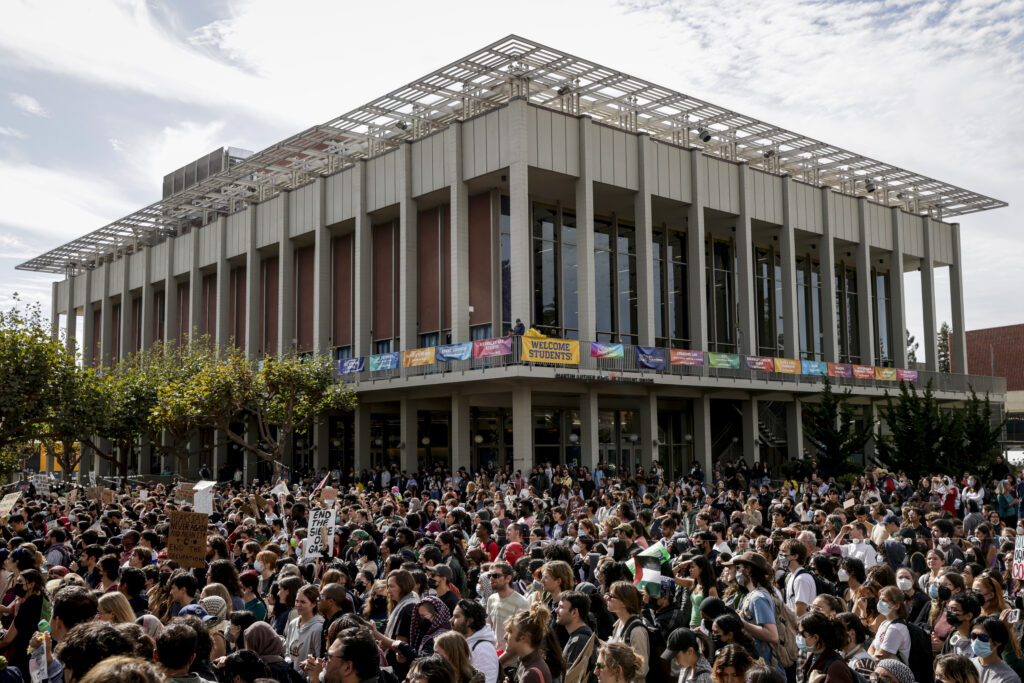During this summer, a team of students from MIT embarked on a journey to the sou …
UC implements policy to prohibit faculty and others from making political statements on its websites
Emma Wordsmith

A policy presented to the University of California’s board of regents could potentially prohibit faculty and staff from publishing political statements, including those related to the Israel-Hamas conflict, on university websites and other channels.
The proposal has been prompted by certain units, such as some ethnic studies departments, openly expressing support for Palestine and criticizing Israel on their websites last fall.
The proposed policy has caused controversy among faculty members who argue that it would undermine their academic freedom and question its enforceability.
UC officials argue that the policy is necessary to prevent the opinions of specific individuals or groups from being mistaken as the official position of the university.
“When individual or group viewpoints or opinions on matters not directly related to the official business of the unit are posted on these administrative websites, it creates the potential that the statements and opinions will be mistaken as the position of the institution itself,” said regent Jay Sures, who developed the proposal.
The regents will not vote on the policy until March at the earliest. The decision to postpone the vote until their next meeting in March was made after the item led to confusion and debate during Wednesday’s regents meeting.
This policy is the latest development stemming from the Israel-Hamas conflict that began on October 7 and sparked strong reactions from pro- and anti-Israel groups.
Although the policy does not explicitly mention any specific issue, some faculty members perceive it as an attempt to stifle discussions on the Israeli-Palestinian conflict.
Since last fall, UC Santa Cruz’s critical race and ethnic studies department website has featured a statement calling for action to end Israel’s attack on Gaza. Likewise, UC San Diego’s ethnic studies department has published several statements and commentaries expressing support for the Palestinian people.
One regent, Hadi Makarechian, acknowledged during the regents meeting that the issue was being considered because “some people were making some political statements” regarding Palestine and Hamas.
Christine Hong, a professor of critical race and ethnic studies at UC Santa Cruz, criticized the regents for attempting to suppress academic freedom and prevent critical study or discussion of Palestine.
Regent Jay Sures maintained that the policy does not impede free speech and suggested that faculty members have other avenues to express their viewpoints aside from the landing pages of departmental websites.
The exact wording of the policy that will be voted on by the regents is not yet known. The initial language of the policy stated that official channels of communication should not be used to express personal or collective opinions. However, this language was criticized for its ambiguity. Two UC law professors, Ty Alper and Brian Soucek, urged the regents to reject the proposal in a letter pointing out the policy’s unanswered questions.
During the meeting, UC staff presented two revised options with clearer language to the regents. One option bans faculty departments from expressing opinions only on the main landing pages of university websites, while the other option extends the ban to other websites at the discretion of a university administrator.
However, these options also faced criticism and led to further debate among the regents and UC officials. Some suggested that the policy should require university departments to have designated opinion pages on their websites and confine political statements or opinions to those pages.
Regent Jay Sures agreed to work with fellow regent Lark Park and UC’s general counsel to further revise the policy and present a new version at the next meeting in March. However, the regents ultimately decided to postpone the vote until March after a motion by regent John Pérez.
Some faculty members argue that the new policy, if it bans faculty departments from making political statements, contradicts a 2022 recommendation by the UC Academic Senate that departments should be allowed to issue opinionated statements. This recommendation upheld freedom of expression and academic freedom as core tenets of the UC educational mission.
The proposal to prohibit departments from making political statements was previously considered and rejected by the Academic Senate in 2022, as noted by the Berkeley Faculty Association in a social media statement. The faculty association also raised questions about the enforcement and governance of the new policy and urged the regents to reject it.


